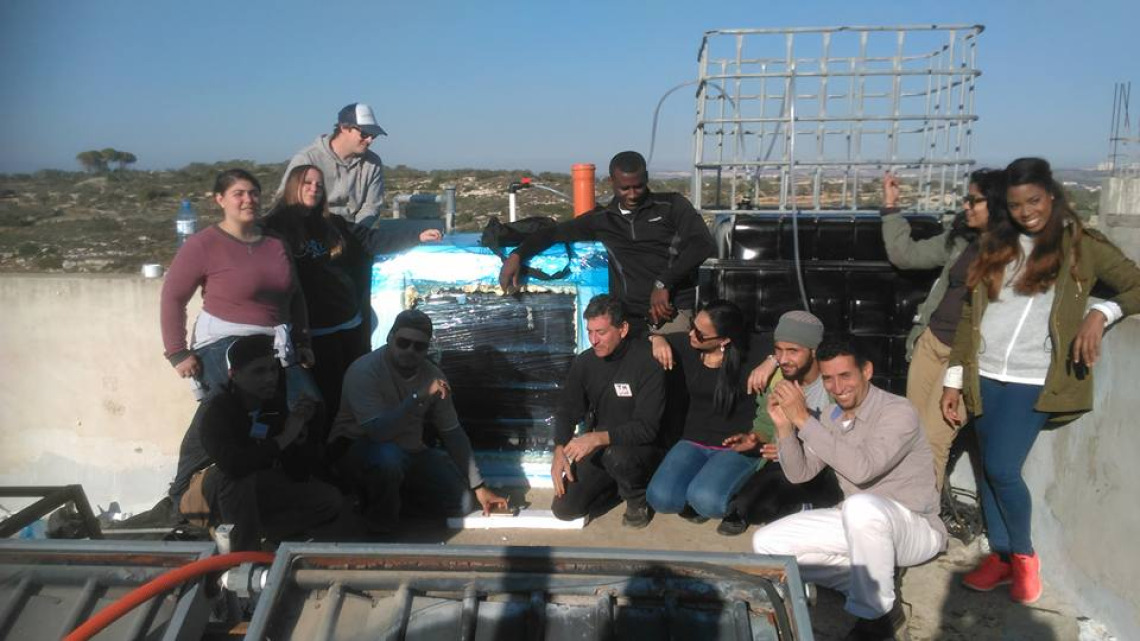
“Voluntourism”, where travelers combine the sightseeing and relaxation of tourism with meaningful volunteer activity that benefits communities and promotes sustainable development, is all the rage these days (see for example, http://www.handsupholidays.com/read/voluntourism). Beyond the laudable idea of tourists simply choosing to vacation in resorts where renewable energy, conservation measures, biodiversity promotion, pesticide free landscaping and zero-waste policies have been put into place, so that tourism dollars actually support and promote infrastructure and practices that lead to greater adoption of better ways of living, tourists are also choosing to be the hands and hearts and minds creating the infrastructure, practices and lifestyles needed to make the world a healthier place.
National Geographic Explorer Dr. T.H. Culhane has been involved in such activities since his days as a college student at Harvard, installing solar electric panels and running workshops on renewable energy for tribespeople when travelling through the jungles of Borneo back in 1986. Twenty years later, visiting Old Islamic Cairo with graduate students, he asked community leaders the question, “given how much sunshine falls here, why does almost nobody use solar energy?” The answer they gave was, “Because you aren't here to do it”. They said, “when you are visiting you don't see the problems we face; we are all busy trying to make things better, but we don't have the access to credit and resources, nor the time and expertise. If sustainability and renewable energy are things you are interested in seeing happen, come and stay with us for a while and let's make them happen” Culhane decided to put his money, and his heart and soul, where his mouth was and into action, moving into the poor area of Cairo for 3 years, founding Solar CITIES and building solar hot water and biogas systems with the communities and setting up a sustainable Egypt eco-tourism trail.
This experience led to Culhane travelling on National Geographic funded projects to bring materials and train people in the use, consruction and installation of photovoltaics, solar thermal, small wind and food-waste-to-fuel-and-fertilizer home biogas systems in countries as diverse as Kenya, Tanzania, Botswana, Nigeria, Nepal, Israel/Palestine, Mexico and Alaska. Much of Culhane's work has been in the introduction of self-made biodigesters in the Great Plains Conservation safari lodges in Africa, villages around the Gombe Chimpanzee reserve, and the Mount Everest trekkers trails in the Khumbu and Hinku valleys.
For the last 4 years Culhane has been a full time professor of Environmental Sustainability and Justice at Mercy College, New York, where each year he continues the tradition of “voluntourism” by leading his students on service learning projects to observe and participate in renewable energy and waste management projects, training them in the field at the college and in the New York and Pennsylvania regions and then bringing the low cost technologies and ideas they develop to developing regions (most recently villages in Palestine and the Bedouin areas of Israel and immigrant sending regions of Belize and the Dominican Republic, where many Mercy students are from).
Culhane, whose doctorate is in Environmental Urban Planning, speaks passionately and insightfully about how every one of us can make a difference wherever we go, as “prosumers” who consume intelligently and ethically and who proactively create alternatives through sharing solutions when we travel.
A key part of Culhane's message is that one thing we all have in common, at home and when on vacation, is the organic residuals (usually called “wastes”) we produce when food is prepared and consumed. By empowering travellers and students with the know-how to transform wastes from kitchens and bathrooms from being problem generators into clean energy, fertilizer and new food again, Culhane shows that each act of consumption can carry the promise of closed-loop sustainability once we recognize how easily we can be part of the solution instead of the problem.
